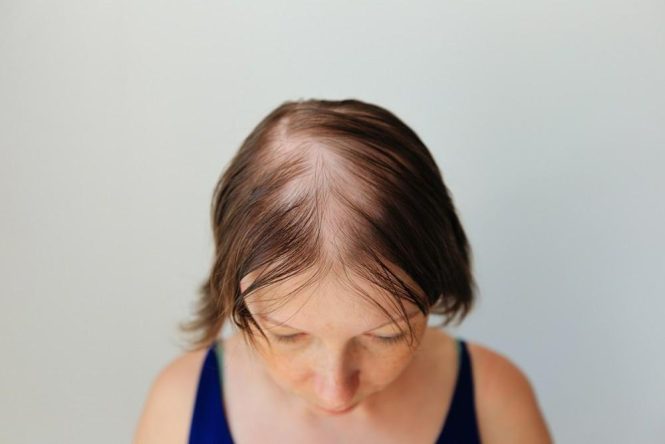

Hair loss frustration is a common experience, impacting self-esteem and triggering anxiety for many. Understanding why you might be losing more hair than usual is crucial for finding effective solutions. This article dives deep into the potential causes of excessive hair shedding, exploring the complexities behind this frustrating issue and offering practical strategies for managing and addressing hair loss concerns. We’ll cover everything from genetics and stress to diet, medical conditions, and treatment options. This guide will structure the issue logically, moving from the initial causes to solutions and finally into frequently asked questions.
Understanding the Underlying Causes of Hair Loss
Genetic Predisposition
A significant contributor to hair loss is genetics. Androgenetic alopecia, often referred to as male or female pattern baldness, is a hereditary condition influenced by hormones and genes. This condition usually starts in the temples and the crown, leading to receding hairlines and thinning hair. This common type of hair loss often runs in families. Studies suggest that around 85% of men experience this condition to some degree.
Stress and Anxiety
While stress is a common part of life, its impact on our physical health is significant, and hair loss is often an indicator. Chronic stress, often caused by work pressures or life events, can disrupt the normal hair growth cycle, resulting in hair shedding and thinning. Stress hormones interfere with the hair follicles, disrupting proper nourishment and growth. The impact of stress on hair health can be quite immediate and widespread.
Hormonal Imbalances
Fluctuations in hormones, especially during pregnancy, menopause, or thyroid issues, are significant factors influencing hair loss. The body’s changing hormone levels can disrupt the hair follicle’s function, leading to a thinning of the hair and increased shedding. Understanding the role of hormones in hair health is critical for addressing this type of hair loss.
Dietary Deficiencies and Their Impact
Nutritional Gaps
Hair health is intrinsically tied to overall nutrition. Inadequate intake of crucial nutrients like protein, iron, biotin, and vitamin D can negatively impact hair growth, leading to weakness, breakage, and hair loss. A balanced diet rich in these essential nutrients is essential for optimal hair health.
Micronutrient Imbalances
In some cases, deficiencies in essential vitamins and minerals can lead to significant hair loss. Inadequate amounts of iron and zinc can lead to brittle hair, thinning, and loss. The connection between diet and hair health is often underestimated, but understanding these connections is crucial for tackling hair loss challenges.
Excessive Processed Foods
A diet high in processed foods, sugars, and unhealthy fats can negatively impact overall health and contribute to hair loss. Balancing diet with adequate fruits, vegetables, and lean proteins is important for preventing deficiencies. Dietary changes can significantly impact how the hair grows.
Medical Conditions and Treatments
Underlying Medical Issues
Some medical conditions, such as thyroid disorders, autoimmune diseases, and anemia, can lead to hair loss. These conditions interfere with the normal functioning of the body, affecting the hair follicles and causing reduced hair growth. Diagnosing and treating the underlying medical condition is key to improving hair health.
Medication Side Effects
Certain medications, like chemotherapy drugs or blood thinners, can cause hair loss as a side effect. Understanding these potential side effects is essential to communicating with doctors. Many medications contain chemicals that can lead to premature hair loss.
Nutritional Supplements
Taking the right nutritional supplements can be helpful in some cases, however, it is important to consult with a healthcare professional before making changes to your treatment plan. This is crucial to avoid potential complications from nutrient imbalances or interactions with existing medications.
Lifestyle Factors
Stress Management Techniques
Chronic stress significantly impacts hair health. Adopting stress management strategies like yoga, meditation, or spending time in nature can help reduce stress levels, promoting healthier hair growth. Finding healthy ways to handle stress is crucial for overall well-being.
Healthy Sleeping Habits
A consistent sleep schedule is essential for overall health and plays a role in maintaining a healthy hair cycle. A sufficient amount of sleep allows the body to repair and rejuvenate tissues, including the hair follicles. Sleep is crucial for hair health.
Exposure to Environmental Factors
Certain environmental factors, such as exposure to pollutants or harsh weather conditions, can also negatively impact hair health. Protecting your hair from harmful environmental elements is necessary for long-term hair health.
Professional Guidance and Treatment Options
Consulting a Dermatologist
Seeking guidance from a dermatologist is essential for proper diagnosis and personalized treatment plans, particularly for persistent hair loss. A dermatologist can identify the underlying cause and recommend appropriate strategies for hair regrowth. Consulting a professional is important to learn more about possible treatments.
Minoxidil and Other Medications
Topical medications like minoxidil, as well as other treatments, may stimulate hair growth in some cases. It’s essential to discuss these options with a dermatologist or healthcare provider to determine their suitability for your specific condition and to understand any potential side effects.
Hair Growth Supplements
In addition to consulting professionals, certain supplements may promote hair growth in some individuals. Consult a healthcare professional before starting any new regimen.
Frequently Asked Questions
What are the most common causes of hair loss frustration?
Hair loss frustration can stem from a variety of factors, including genetic predisposition, stress, hormonal imbalances, dietary deficiencies, underlying medical conditions, or even medication side effects. Identifying the root cause of hair loss is essential for implementing effective solutions. If you’re experiencing significant hair loss, consult a dermatologist for accurate diagnosis and tailored treatment. Addressing hair loss involves understanding the multifaceted nature of this issue and consulting professionals for the best outcomes.
What are some simple steps I can take to reduce hair loss?
Adopting a balanced diet rich in essential nutrients like protein, vitamins, and minerals can significantly support hair health. Managing stress levels through relaxation techniques like yoga or meditation can also help reduce hair shedding. Prioritizing adequate sleep and protecting your hair from environmental damage can contribute to maintaining a healthy hair growth cycle. Maintaining these habits will help you understand how to improve hair health.
In conclusion, experiencing hair loss frustration is a common struggle, but understanding the potential causes and adopting proactive measures can make a significant difference. This article explored the multifaceted nature of hair loss, from genetics and stress to dietary deficiencies and underlying medical conditions. Remember, consistent self-care, including a balanced diet, stress management, and consulting a dermatologist, are vital steps in addressing hair loss. If you’re concerned about your hair loss, don’t hesitate to seek professional guidance for a tailored solution. Schedule a consultation with a dermatologist today to explore personalized strategies for healthy hair growth.